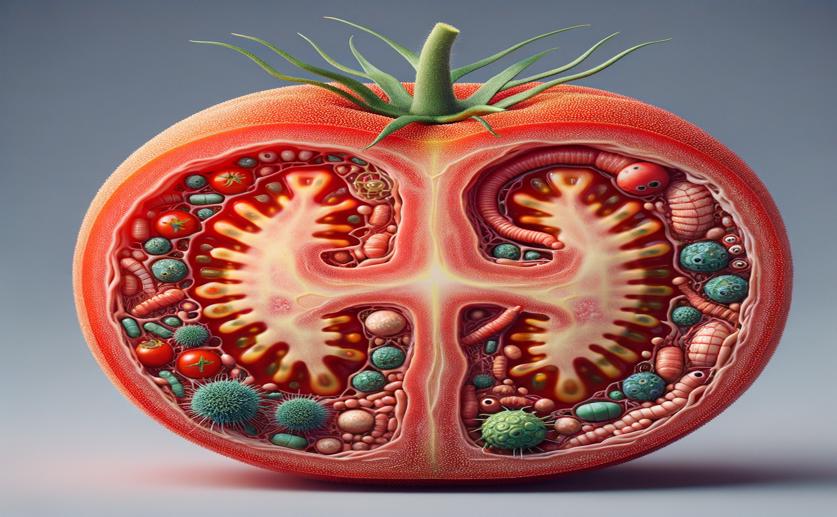
Changes in Tomato Microbiomes During Parasitic Attack
Jim Crocker
28th July, 2024

Image Source: Natural Science News, 2024
Key Findings
- The study from Aarhus University examined how root-knot nematodes (RKN) affect the microbial communities in tomato plant roots and soil
- RKN presence significantly altered the structure of microbial communities, including bacteria, fungi, and unicellular eukaryotes
- Non-infested soils had higher microbial diversity and more balanced communities, which may help suppress RKN
AgricultureBiochemPlant Science
References
Main Study
1) Distinct changes in tomato-associated multi-kingdom microbiomes during Meloidogyne incognita parasitism
Published 27th July, 2024
https://doi.org/10.1186/s40793-024-00597-y
Related Studies
2) Rhizosphere Microbiomes from Root Knot Nematode Non-infested Plants Suppress Nematode Infection.
3) Deciphering the rhizosphere microbiome for disease-suppressive bacteria.



 25th July, 2024 | Jenn Hoskins
25th July, 2024 | Jenn Hoskins